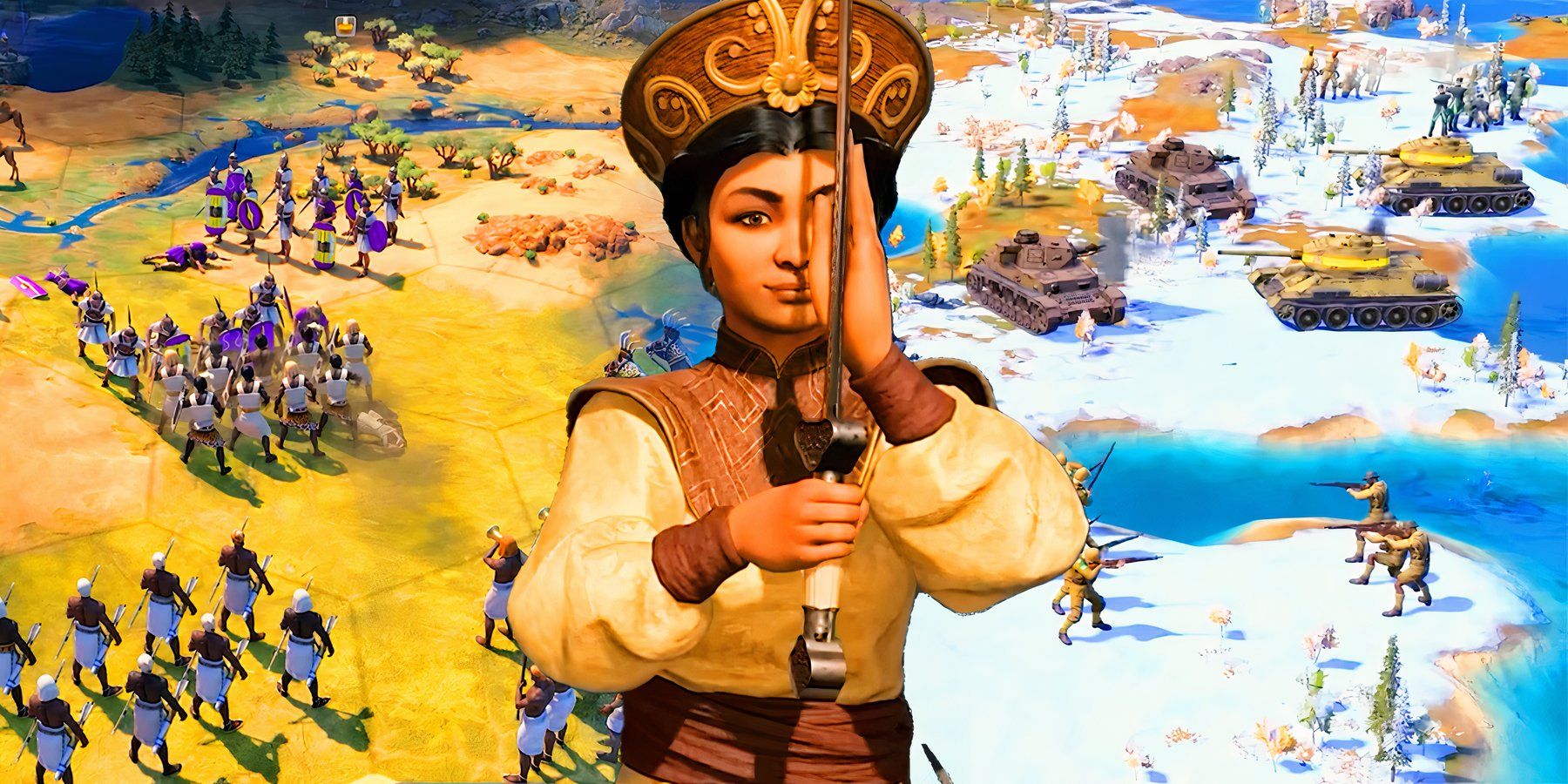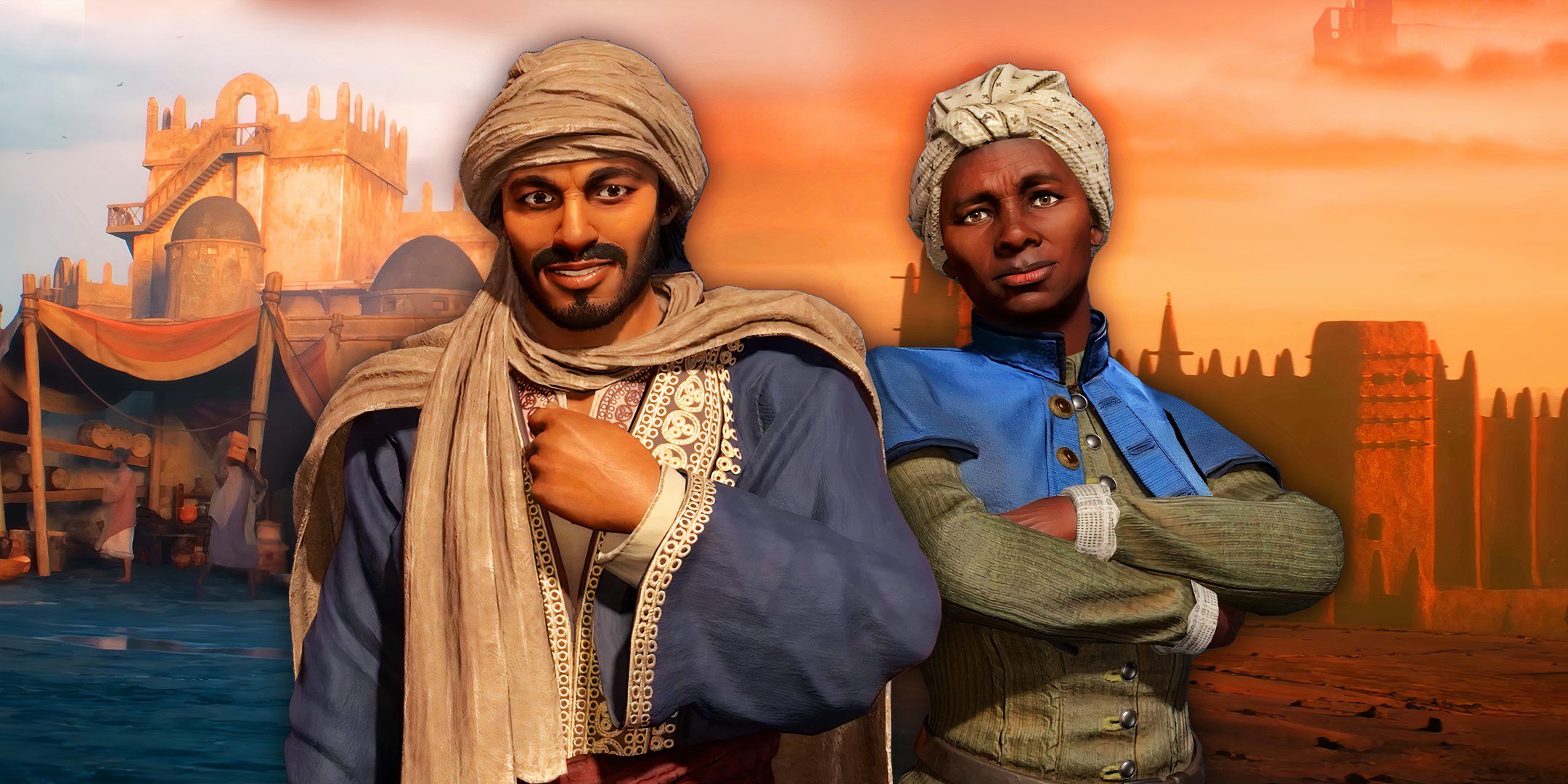Each of the three Ages in Civilization 7 has distinct features only available within their respective chapter of the game. Players are confined to a smaller area of the map during the Antiquity Age, for example, and with each new Age, more land becomes accessible through shipbuilding and naval exploration. In the Exploration Age in particular, these previously inaccessible areas are referred to as the Distant Lands, and they play a central role during the Age's four unique Legacy Paths. The Exploration Age reflects a period in history where technology, mercantilism, and colonialism were at the forefront of civilization.
As players make their way through the Exploration Age, they can choose to focus on any or all of the four Legacy Paths: Economic, Military, Science, and Culture. Players will start to venture across the open ocean, which is actually dangerous and inflicts damage. Treasure fleets, trade, and expanding the reach of each empire will be crucial aspects of strategy in the Exploration Age, all of which focus on reaching the Distant Lands and unlocking its many mysteries. Here's a look at what the Distant Lands are in Civilization 7 and what they mean for Exploration Age gameplay.
What The Distant Lands Are In Civ 7’s Exploration Age
The Distant Lands Are Home To Independent Powers, Hidden Treasures, And Unmet Civs
The Distant Lands are the undiscovered, previously inaccessible areas of the map that players can only gain access to after reaching the Exploration Age. Cartography and Shipbuilding technologies only become available in the Exploration Age Technology Tree, for example, so sailing across open ocean is not possible in the Antiquity Age. The Distant Lands contain a unique Resource type called Treasures that can be used to connect to Settlements and establish Treasure Fleets. There will also be undiscovered Wonders in the Distant Lands, as well as any unmet civilizations in the campaign and any Independent Powers.
When it comes to Distant Lands on different map types, they will always exist in some form, but will depend on the specific map type. According to developers in the Exploration Age livestream, "Depending on which map type you select, either the Distant Lands are going to be a carbon copy of your homeland area or entirely different." The Distant Lands are relevant for every Legacy Path, most significantly in the Economic and Military paths. The unique features of each civilization and leader to see how they might benefit from exploration in the Distant Lands must be considered.
Why The Distant Lands Matter For Civ 7 Legacy Paths
Collect Treasures And Conquer Settlements In The Distant Lands
The Distant Lands are most significant in the Economic and Military Legacy Paths. Players reach milestones along the Economic Legacy Path by gaining 30 Treasure Fleet Points from returning Distant Land Treasures. Establishing Treasure Fleets requires sending naval units out across the ocean (or other vast distance, depending on the map). These Treasure Fleets require sending ships out and collecting treasures and returning it back home, but doing so will require researching Cartography, Astronomy, and eventually Shipbuilding. Players will want to invest in Science and avoid mastering and techs to unlock Shipbuilding as quickly as possible.

Related
Civ 7's New Combat System Explained
Civ 7 will introduce new combat systems including Commanders and disciplines, siege warfare, and improved combat animations.
The Military Legacy Path in the Economic Age requires equal focus on the Distant Lands, where the Non Sufficit Orbis project awards points based on Settlements in the Distant Lands. Players can send Settlers into the Distant Lands to expand their empire, or choose to conquer Settlements in the Distant Lands, either from opponent civilizations or independent powers.
Points are doubled if the Settlement (i.e. a Town or a City) is conquered, or if it follows the player's Religion, and it's quadrupled if both are true. Religion in Civ 7 is incredibly important in the Exploration Age, especially for the Cultural Legacy Path. The Cultural Legacy Path in the Exploration Age, Toshakhana, requires establishing a Religion and collecting Relics by spreading that Religion to Settlements in the Distant Lands.
Once Beliefs are selected, Apostles and Missionaries can be produced or purchased and will set out on a mission to convert Settlements to their Religion by expending charges in both urban and rural districts. Once the player's Religion becomes the majority of that Settlement, they are automatically awarded a Relic that is slotted and showcased in various displays throughout their civilization. The Distant Lands are integral to all three of these Legacy Paths.

Related
Civilization 7's Overhauled Gameplay Systems Have Some Serious Pros - And Cons
Civilization 7 will overhaul most of the gameplay systems from previous Civ games, which comes with both pros and cons.
The Scientific Legacy Path in the Exploration Age is focused on the Enlightenment. To fully complete this path might require players not focusing as much on the Distant Lands as they do on their own cities and towns.
The Enlightenment requires players to have five districts that are not the City Center with 40 total yield each, which will take some serious investment in researching specific technologies and careful planning of Specialists, a unique unit that can improve urban tiles in cities. It is entirely possible to pursue all four Legacy Paths, but focusing on fewer will be more effective.
How The Distant Lands Will Impact Strategy In Civ 7
Each Legacy Path Requires Planning Around The Distant Lands

The Distant Lands in Civilization 7 will require players to carefully consider how they want to expand their civilization. By pursuing the Economic or Militaristic Legacy Paths, players will have to venture deep into the Distant Lands and research specific naval technologies to be able to explore the open ocean.
A Cultural Legacy focus, on the other hand, requires a focus on Civics and investment in Religious units to acquire as many Relics as possible. Ultimately, the decision will come down to the choices players made in the Antiquity Age, and which path they will pursue in the Modern Age.
Choosing to pursue as many Legacy Paths in their entirety will take some serious planning (and maybe a little luck).
Players might also choose to ignore the Distant Lands entirely and focus on the home front in pursuit of the Scientific Legacy Path of the Exploration Age, embracing the Enlightenment ideals and expanding "upward" with a return to the beloved "tall play" style from previous Civ games.
Choosing to pursue as many Legacy Paths in their entirety will take some serious planning (and maybe a little luck), or opting to ignore the Legacy Paths entirely are also viable strategies. The Distant Lands in Civilization 7 are an essential part of the Exploration Age, and will be pivotal in developing a strategy across the Ages.
Source: Civ Streams: The Exploration Age/ Civilization/YouTube

Your changes have been saved
Grand Strategy
Turn-Based Strategy
4X
Franchise Sid Meier's Civilization
Released February 11, 2025
Developer(s) Firaxis Games
Publisher(s) 2K
Multiplayer Online Multiplayer
Engine Gamebryo Engine
ESRB t
PC Release Date February 11, 2025
Xbox Series X|S Release Date February 11, 2025
PS5 Release Date February 11, 2025
Nintendo Switch Release Date February 11, 2025
X|S Optimized Yes
Number of Players 1-8
Steam Deck Compatibility Unknown
Local Co-Op Support No
Cross Save Yes, via 2K account
Cross-Platform Play Yes - all platforms, restrictions apply









 English (US) ·
English (US) ·